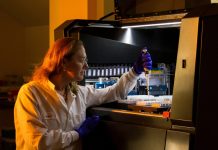Boston Scientific has unveiled promising results for its modular cardiac rhythm management system at the Heart Rhythm Society meeting, with FDA approval anticipated in 2025. This innovative system addresses the limitations of subcutaneous implantable cardioverter defibrillators (ICDs), which, while reducing lead-related complications compared to transvenous devices, cannot provide prolonged bradycardia or antitachycardia pacing therapy. The new system integrates a leadless pacemaker wirelessly connected to a subcutaneous ICD, enabling the delivery of antitachycardia pacing to stop arrhythmias.
In a clinical trial involving 293 patients at risk of sudden death due to ventricular arrhythmias, the system met all pre-specified six-month safety and effectiveness endpoints. The trial results, published in The New England Journal of Medicine, showed that 97.5% of patients were free from major complications related to the leadless pacemaker, with successful wireless-device communication in 98.8% of tests. By using antitachycardia pacing, the device was able to end 61.3% of arrhythmia events, which is comparable to the success rates of other big ICD studies.
However, 4.9% of patients experienced inappropriate shocks, attributed to patient selection and device programming. Ken Stein, Boston Scientific’s global chief medical officer, highlighted the system's potential to significantly enhance the versatility and adoption of subcutaneous ICDs.























